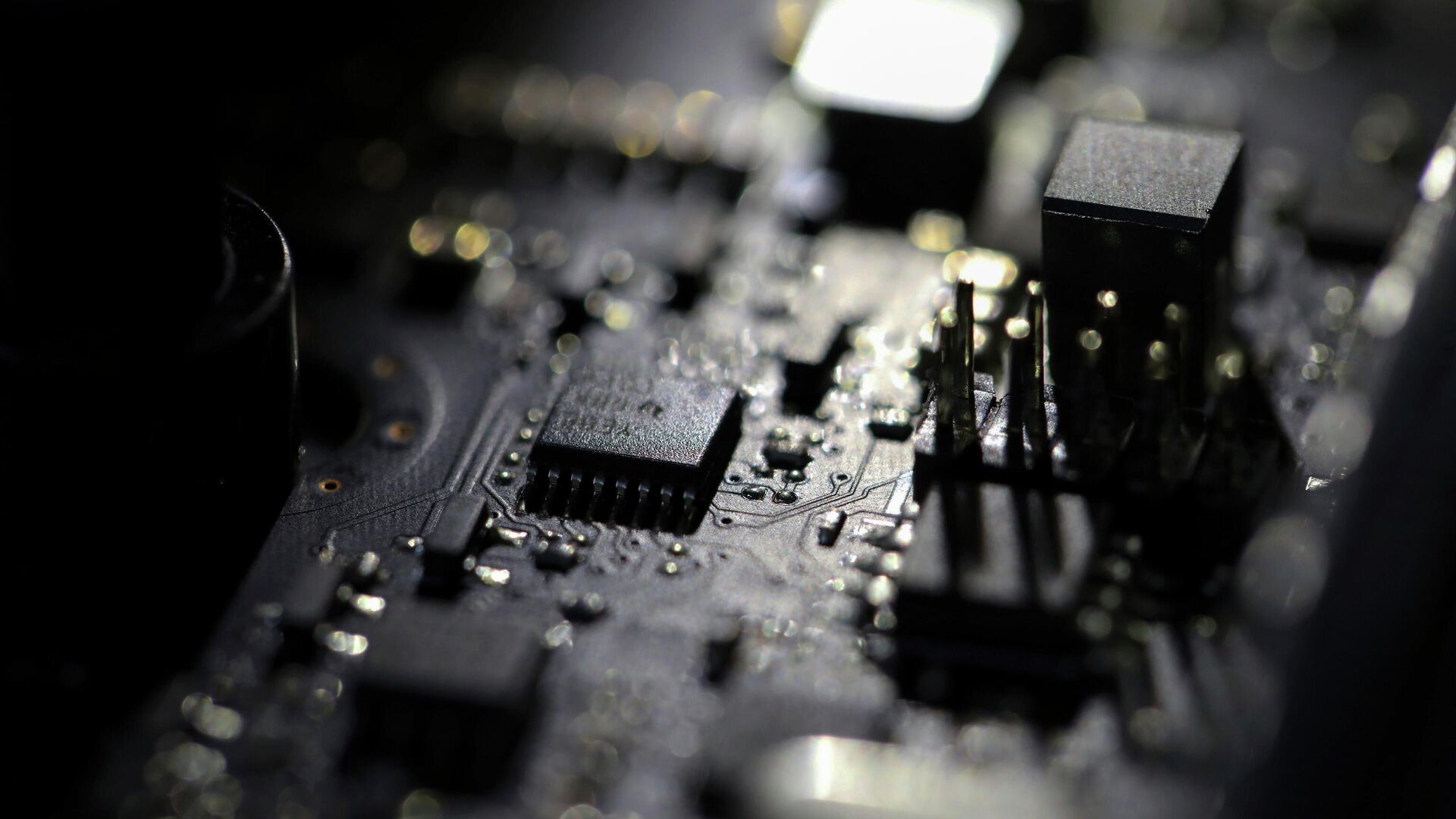https://sputniknews.in/20251115/indiarussia-digital-collaboration-poised-to-shape-self-reliant-tech-era-experts-10069814.html
India–Russia Digital Collaboration Poised to Shape Self-Reliant Tech Era: Experts
India–Russia Digital Collaboration Poised to Shape Self-Reliant Tech Era: Experts
Sputnik India
India and Russia are deepening cooperation in information technology, artificial intelligence, and cybersecurity, building on a long-standing partnership that... 15.11.2025, Sputnik India
2025-11-15T11:30+0530
2025-11-15T11:30+0530
2025-11-15T11:30+0530
world news
science & tech
india
russia
moscow
brics
https://cdn1.img.sputniknews.in/img/07e7/09/15/4369327_0:160:3072:1888_1920x0_80_0_0_1cb0aeb8bee9a9d684da0e3bcf437115.jpg
As both nations move toward digital sovereignty and reduced dependence on Western technologies, experts say the collaboration could set a new global benchmark.With Moscow facing unilateral Western sanctions, India has emerged as one of Russia’s most reliable economic partners. Amid expanding bilateral ties, the two countries have begun formal discussions on strengthening cooperation in IT and digital innovation.To understand the evolving partnership, Sputnik India spoke with Rajesh Menon, a cyber policy researcher at the Center for Strategic Digital Studies. Menon believes India and Russia are uniquely positioned to create a model of digital sovereignty grounded not in isolation but in balance and mutual trust.According to him, both nations possess the technical capabilities and political will to develop secure digital infrastructure — ranging from independent cloud ecosystems to joint cybersecurity protocols. In a world where a handful of Western corporations dominate global data flows, closer coordination between Moscow and New Delhi could set a precedent for the Global South.One practical initiative, Menon suggests, could be the creation of a Russia–India Digital Security and Innovation Center, jointly located in Moscow and Bengaluru. The center could focus on next-generation threat intelligence systems, encryption algorithms, and AI-based anomaly detection tools.Discussing finance and payment systems, Menon highlights that Russia already operates MIR — a successful alternative to Western payment infrastructure — while India’s RuPay and UPI platforms are among the world’s most advanced.On artificial intelligence and cybersecurity, Menon stresses that the two must progress together. India and Russia, he argues, can co-develop ethical AI standards and data governance principles focused on transparency, bias prevention, and protection of personal data."For example, a bilateral AI ethics council could draft policy recommendations and coordinate open-source research. Russia brings deep scientific expertise and a strong mathematical tradition, while India offers large-scale implementation capacity and an agile innovation culture," Menon explained.Menon concludes that digital independence does not mean digital isolation. Instead, the goal is to diversify digital ecosystems, guarantee technological self-reliance, and promote fair competition."The real goal is to diversify digital ecosystems, ensure technological self-reliance and promote fair competition. If Russia and India can coordinate their efforts through shared infrastructure, interoperable platforms and trusted data standards, they can truly become global leaders in building a multipolar digital order," Menon said.
india
russia
moscow
Sputnik India
feedback.hindi@sputniknews.com
+74956456601
MIA „Rossiya Segodnya“
2025
Sputnik India
feedback.hindi@sputniknews.com
+74956456601
MIA „Rossiya Segodnya“
News
en_IN
Sputnik India
feedback.hindi@sputniknews.com
+74956456601
MIA „Rossiya Segodnya“
Sputnik India
feedback.hindi@sputniknews.com
+74956456601
MIA „Rossiya Segodnya“
science & tech, india, russia, moscow, brics
science & tech, india, russia, moscow, brics
India–Russia Digital Collaboration Poised to Shape Self-Reliant Tech Era: Experts
India and Russia are deepening cooperation in information technology, artificial intelligence, and cybersecurity, building on a long-standing partnership that spans defence, space and strategic sectors.
As both nations move toward digital sovereignty and reduced dependence on Western technologies, experts say the collaboration could set a new global benchmark.
With Moscow facing unilateral Western sanctions, India has emerged as one of Russia’s most reliable economic partners. Amid expanding bilateral ties, the two countries have begun formal discussions on strengthening cooperation in IT and digital innovation.
To understand the evolving partnership, Sputnik India spoke with Rajesh Menon, a cyber policy researcher at the Center for Strategic Digital Studies. Menon believes India and Russia are uniquely positioned to create a model of digital sovereignty grounded not in isolation but in balance and mutual trust.
According to him, both nations possess the technical capabilities and political will to develop secure digital infrastructure — ranging from independent cloud ecosystems to joint cybersecurity protocols. In a world where a handful of Western corporations dominate global data flows, closer coordination between Moscow and New Delhi could set a precedent for the Global South.
One practical initiative, Menon suggests, could be the creation of a Russia–India Digital Security and Innovation Center, jointly located in Moscow and Bengaluru. The center could focus on next-generation threat intelligence systems, encryption algorithms, and AI-based anomaly detection tools.
"This center would combine Russia’s strength in hardware-level cybersecurity with India’s vast software engineering talent. Such a platform could also train experts in both government and private sectors, helping the two countries reduce their dependence on Western security vendors," Menon said.
Discussing finance and payment systems, Menon highlights that Russia already operates MIR — a successful alternative to Western payment infrastructure — while India’s RuPay and UPI platforms are among the world’s most advanced.
"A joint task force could work on interoperability between these systems or even operate a shared digital settlement mechanism for cross-border trade within the BRICS framework. This would make bilateral trade more resilient and could ultimately lay the foundation for a broader non-Western digital economy," he said.
On artificial intelligence and cybersecurity, Menon stresses that the two must progress together. India and Russia, he argues, can co-develop ethical AI standards and data governance principles focused on transparency, bias prevention, and protection of personal data.
"For example, a bilateral AI ethics council could draft policy recommendations and coordinate open-source research. Russia brings deep scientific expertise and a strong mathematical tradition, while India offers large-scale implementation capacity and an agile innovation culture," Menon explained.
Menon concludes that digital independence does not mean digital isolation. Instead, the goal is to diversify digital ecosystems, guarantee technological self-reliance, and promote fair competition.
"The real goal is to diversify digital ecosystems, ensure technological self-reliance and promote fair competition. If Russia and India can coordinate their efforts through shared infrastructure, interoperable platforms and trusted data standards, they can truly become global leaders in building a multipolar digital order," Menon said.

